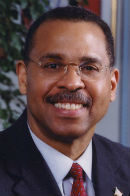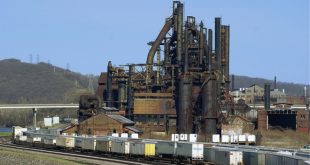The U.S. shale industry is nothing if not resilient. OPEC—a cartel of petrostates holding the world’s largest and cheapest oil reserves—leverages state control over its oil resources to undermine America’s competitive producers. Thanks to its latest moves, the U.S. energy industry is again under pressure, reminding us that we must take stronger action to ensure our energy security and energy sovereignty. We can boost these efforts by forming an OPEC Commission, which will appoint a panel of experts to study OPEC’s impact on the U.S. economy and offer recommendations to the President and Congress to protect American interests.
Thanks to the actions of President Trump and his America First Energy Plan, the strategic value of U.S. oil is being fully recognized. The President has kept his word to maximize the benefits of American resources, through the signing of Executive Orders that prioritize construction of vital energy infrastructure and expanding offshore drilling. Our country will remain a force to be reckoned with in the global oil market.
However, OPEC’s attempts to bolster prices to meet the social spending needs of its member states merely interrupted the oil market’s readjustment, and falling prices have returned—with implications for American energy companies. Oil prices fell from $53 in January to $45 in June, and a mantra of “lower for longer” has returned to the energy conversation—a trend that can have major consequences for our energy independence.
Since April, $115 billion has been wiped from the market value of the world’s biggest oil majors, including Exxon Mobil, Chevron and BP. Blame for this can be laid at the feet of OPEC, whose production quotas, rhetoric, limitations and exemptions distorted the oil market and prevented its rebalancing.
Low oil prices are good for consumers and many businesses, and stimulate the economy. But they also hurt the very industry that has made this possible and wrestled market control away from OPEC members. It is a scenario we have seen before. After OPEC flooded the market, the price of oil dropped from $110 per barrel in July 2014 to just $26 in January 2016, resulting in the bankruptcy of more than 200 U.S. oil and gas companies, and the loss of approximately 150,000 jobs.
Investment in new production, necessary for maintaining a stable supply of oil, was also lost. Financing for new projects fell by $300 billion between 2015 and 2016, a move which analysts are predicting will lead to a “decade of disorder” in the 2020s, where supply and demand mismatches will be exacerbated by geopolitical instability.
Yet oil is a volatile commodity, priced on an unfree global market subject to the outsized influence of state-owned oil companies and their collusion through OPEC. No matter how much oil we drill at home, we will always be vulnerable to the price spikes and slumps brought about through the actions of countries that don’t share our democratic or free-market principles.
The country that feels these spikes most keenly is the United States. Consuming 20 percent of the world’s daily oil supply makes us the world’s largest consumer of oil. Transportation, the lifeblood of the U.S. economy, depends on oil for 92 percent of its energy. We can’t let OPEC hold our transportation system hostage if we want to achieve the administration’s goal of energy dominance.
By fostering increased supply through promoting more drilling here at home, President Trump has already achieved gains on one side of this equation. But we must understand the anticompetitive forces at work in the oil market, and find ways to counter OPEC’s pernicious influence. Work is already underway in Congress on this, through the bipartisan introduction of H.R. 545 to create a Congressional OPEC Commission, which will study these dynamics. Let’s pass H.R. 545 now, and help usher in an era of U.S. energy dominance as a result.
 Ken Blackwell is former Domestic Policy Advisor to the Trump Transition Team and an advisor to Securing America’s Future Energy. He is a Fellow at the National Academy of Public Administration in Washington, D.C.
Ken Blackwell is former Domestic Policy Advisor to the Trump Transition Team and an advisor to Securing America’s Future Energy. He is a Fellow at the National Academy of Public Administration in Washington, D.C.
The views expressed in opinion articles are solely those of the author and are not necessarily either shared or endorsed by Black Community News.
 CURE News and Clergy Blog News and Commentary for Christians
CURE News and Clergy Blog News and Commentary for Christians



